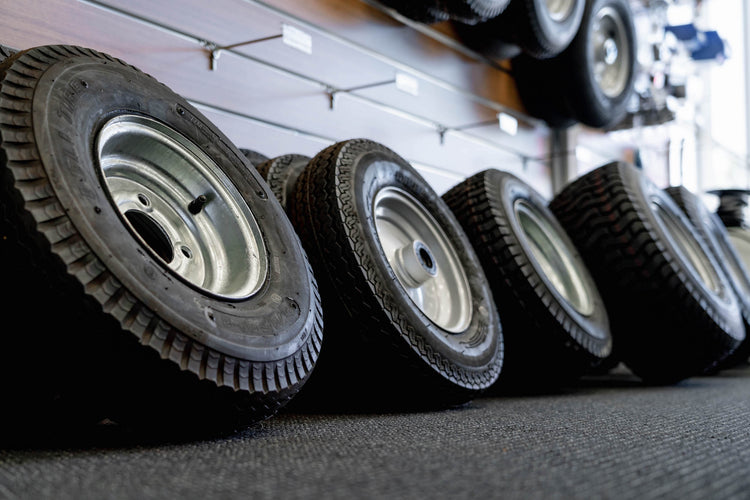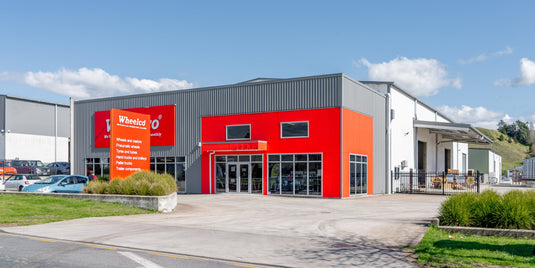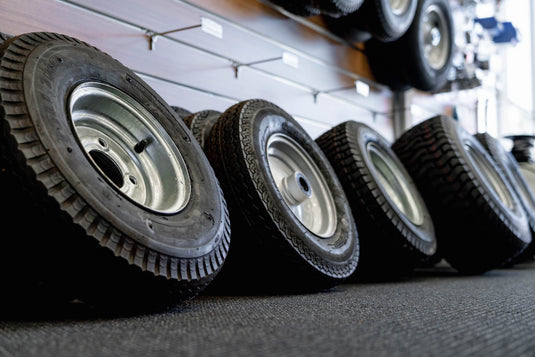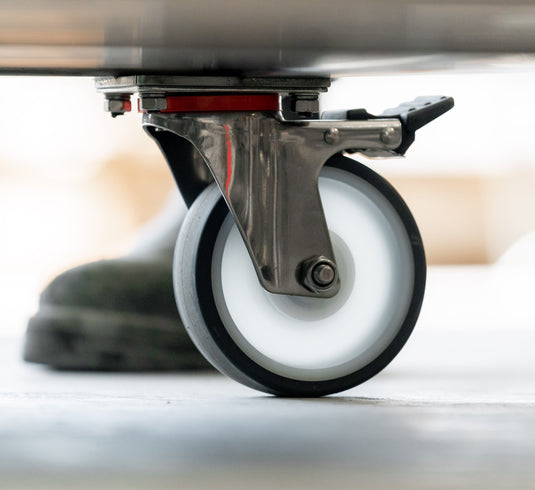If you’re looking for a wheel online you may have already worked out - there are a lot of options. But if you have a clear idea of the application and requirements you have from castor or wheel, it can be easier to sort through and find exactly what you need - especially if you’re using Wheelco’s new online shop!
What’s the load you’ll be moving?
Understanding what you need to be moving from A to B is fundamental to choosing the right wheel or castor. The ‘what’ matters as much as the ‘how heavy’, with some cargo requiring as smooth a ride as possible to avoid breakages. For those situations a shock-absorbing wheel such as a pneumatic option might make sense.
Of course the load weight is important to know as well. Overloading a castor or wheel collectively (all wheels’ capacity) is simply a recipe for disaster whether that’s a wheel failing (at the mount, axle, hub, tyre etc) or the load carrying equipment warping and losing the load.
One thing we always suggest is to leave sufficient capacity just in case - don’t buy wheels for a 200kg load that are each rated to 50 kg each. If possible a 25-30% capacity can be a useful buffer for moments where the load is being transferred.
Considering the floor or terrain
Shock absorbing wheels or castors are especially useful when your handling equipment needs to move over rough terrain without damaging the load. Pneumatic tyres can help account for outdoor loose ground like gravel on a construction site or even getting across slight elevations between a factory floor and outside driveway. If your load won’t need to get over these obstacles, then you may find a nylon or solid stainless steel option that meets your needs better.
Mounting requirements
Take a look at your equipment that needs a replacement wheel - it will have a particular mounting that will determine which products will be compatible.
Mounting can include:
- Fixed plate - the castor wheel affixes to the underside of the equipment with bolts or screws.
- Bolt hole - this mounting type includes a hole in the top of the mounting to be affixed to furniture or equipment.
- Stem mounting - in this configuration the stem protrudes from the castor and slots into a hole in the underside of the equipment or furniture. An office chair is a good example of this in action.
- Swivel - a plate includes a 360 degree spinning component that allows the castor to spin around - great for equipment that needs to be carefully maneuvered.
- Traditional wheel axle - if you don’t need a castor but a wheel to replace things like a lawn mower, you’ll need to make sure you choose a replacement wheel with a compatible bore diameter.
Chemical and wet areas - do you need a corrosive resistant option?
Do you need your wheel to function in places where it may come into contact with toxic chemicals or a lot of water? You should make sure to check that your wheel is rated for this environment. Manufactures design wheels and castors specifically for this purpose.
Ease of installation
Each type of wheel or castor has its own installation steps to follow. With Wheelco you can access both CAD and installation support from our team. It can be a good idea to determine what’s involved in swapping out your current wheel with a new one (or simply the installation requirements if you’re working on a new build). Our customers come from all industries and levels of experience from novice through to engineer, so what’s easy for one person might not be for someone else.
Things to work out around installation include:
- What is the current mounting system of the old wheel (if applicable).
- How easy is it to remove the old wheel?
- Will there be any remedial work done to the platform or equipment before installing the new wheel?
- Does the new wheel’s mounting fit on the equipment properly?
- What tools are needed to install the new wheel - and are there fittings needed beyond what comes with the wheel?
- Are the bolts or screws going to securely fit in the equipment or do holes need to be re-drilled first.
Buying for better longevity and function
Each component of a wheel or castor and how it’s assembled makes a big difference in terms of how long it’ll last. If you’re using a wheel for a commercial application it might be a good idea to spend slightly more on a better quality wheel that will get the job done better, and be up to the daily grind. Everything down to the quality of washers and accuracy of welds can have a knock on effect in practical application.
While a castor in a work environment is unlikely to last forever, the adage of buy once, buy right does ring true here. You can end up spending more churning through low quality castors in the same period of time where one good quality castor would have survived and worked a whole lot better.
Shop online with Wheelco today
Find your castor and wheels in our online shop. If you can’t find exactly what you’re looking for, get in touch with us - we have access to many more options not stocked online. We can also do custom builds so you get exactly the size, mount and even colour that you need.




